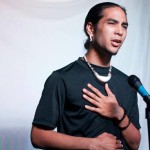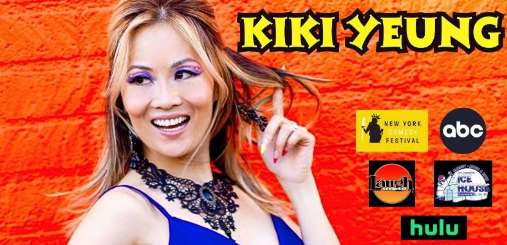“Changing The Narrative: APIs in the media” re-focuses for a new generation
When Umeko Motoyoshi was a young girl, she struggled to find relatable characters on TV and in movies. As a mixed race Japanese American, she saw neither herself nor her Japanese family represented positively, if at all. In fact, the only Asian woman she saw on TV was Ling Woo, a classic Dragon Lady who prostituted herself for a job at Ally McBeal’s law firm. These negative Hollywood portrayals of Asians left very little for Ms. Motoyoshi to identify with.
“Changing The Narrative: APIs in the media” a project of 26 year old Ms. Motoyoshi, was conceived because she felt the need to create more dialogue on APIs in the media and the impact on media audiences. Her project received support from the Japanese American Citizens League, Seattle Organization of Chinese Americans, Fred Korematsu Center for Law and Equity, and Seattle University Office of Multicultural Affairs.
[blockquote cite=”Umeko Motoyoshi”]“Today, API students are far more likely than others to be bullied in schools” [/blockquote]
“Western media portrayals of API people constitute a crisis, one that has been ongoing for 100 years”, says Ms. Motoyoshi, a board member of Seattle Japanese American Citizens League. “We see these narratives told over and over again, perpetuating an atmosphere of ignorance at best and violence at worst … Today, API students are far more likely than others to be bullied in schools. When people learn about the API community only through 2-dimensional stereotypes, they enact violence much more easily upon us,” Ms. Motoyoshi elaborates.
In support of Motoyoshi’s project, a new generation of social activists raised the awareness of an audience who wanted to learn more about the past and current portrayals of APIs in the media. This event was well attended and was held on the campus of Seattle University.
An array of amazing presenters kept the discussion lively and focused. Beginning with an inspiring introduction by Ms. Motoyoshi, she was followed by
 Dr. Rahul K. Gairola, who provided a scholarly view on the topic of Orientalism, discussing the specific ways in which API characters are gendered and sexualized in media. Gairola teaches at Seattle University and University of Washington;
Dr. Rahul K. Gairola, who provided a scholarly view on the topic of Orientalism, discussing the specific ways in which API characters are gendered and sexualized in media. Gairola teaches at Seattle University and University of Washington;
 Kevin Bang, Co-Director of the Seattle Asian American Film Festival informed us of his upcoming film project curating stories about Asian American artists, entrepreneurs, and influencers who are defining and driving culture in Seattle;
Kevin Bang, Co-Director of the Seattle Asian American Film Festival informed us of his upcoming film project curating stories about Asian American artists, entrepreneurs, and influencers who are defining and driving culture in Seattle;
 Troy Osaki , is the 2012 Youth Speaks Seattle and University of Washington Grand Slam Poetry Champion, he delivered a thought-provoking poem describing the ways in which his Japanese American grandmother inspires him to resist assimilation and erasure;
Troy Osaki , is the 2012 Youth Speaks Seattle and University of Washington Grand Slam Poetry Champion, he delivered a thought-provoking poem describing the ways in which his Japanese American grandmother inspires him to resist assimilation and erasure;
 Ponyboy/Alix Kolar spoke about hirs new movie “R/EVOLVE”, which respectfully portrays a genderqueer API character. Kolar is a co-owner and producer at dual power productions, is part of a collective called Reteaching Gender & Sexuality, and also works at The Vera Project;
Ponyboy/Alix Kolar spoke about hirs new movie “R/EVOLVE”, which respectfully portrays a genderqueer API character. Kolar is a co-owner and producer at dual power productions, is part of a collective called Reteaching Gender & Sexuality, and also works at The Vera Project;
 si dåko’ta represents Arkiology, a group dedicated to Pacific Islander activism and cultural work through music and art, Camacho spoke of the experiences of Pacific Islanders through the lens of media.
si dåko’ta represents Arkiology, a group dedicated to Pacific Islander activism and cultural work through music and art, Camacho spoke of the experiences of Pacific Islanders through the lens of media.
 John Eklof, delivered a passionate, takedown of the US media’s fear of API masculinity. Eklof is a spoken word poet and is Cultural Center Coordinator at South Seattle Community College.
John Eklof, delivered a passionate, takedown of the US media’s fear of API masculinity. Eklof is a spoken word poet and is Cultural Center Coordinator at South Seattle Community College.
 Connie So, in a most interesting and informative manner summarized 100 years of media and its effects on a variety of topics such as Asian sexuality, Asian male emasculation, self-image, colonialism, perpetuation of Yellow Fever, fetishism, and Yellowface. Her presentation captured the essence of this workshop. Ms So is the director of the American Ethnic Studies field internships and practicum and Senior Lecturer at the University of Washington.
Connie So, in a most interesting and informative manner summarized 100 years of media and its effects on a variety of topics such as Asian sexuality, Asian male emasculation, self-image, colonialism, perpetuation of Yellow Fever, fetishism, and Yellowface. Her presentation captured the essence of this workshop. Ms So is the director of the American Ethnic Studies field internships and practicum and Senior Lecturer at the University of Washington.
This mixed group of presenters provided plenty to think about for the diverse group of attendees. Upon conclusion of the workshop, attendees still had plenty of questions and discussion and continued to dialogue with the panel members and each other. One important topic was the experience of API people who identify as LGBTQ. The workshop made efforts to increase awareness of this issue, which was once taboo within the API community.
Changing The Narrative is a poignant reminder of the continuing impact that media has on the self-image of the API community and the importance for the viewing audiences to carefully screen and filter what is fiction and fact.







